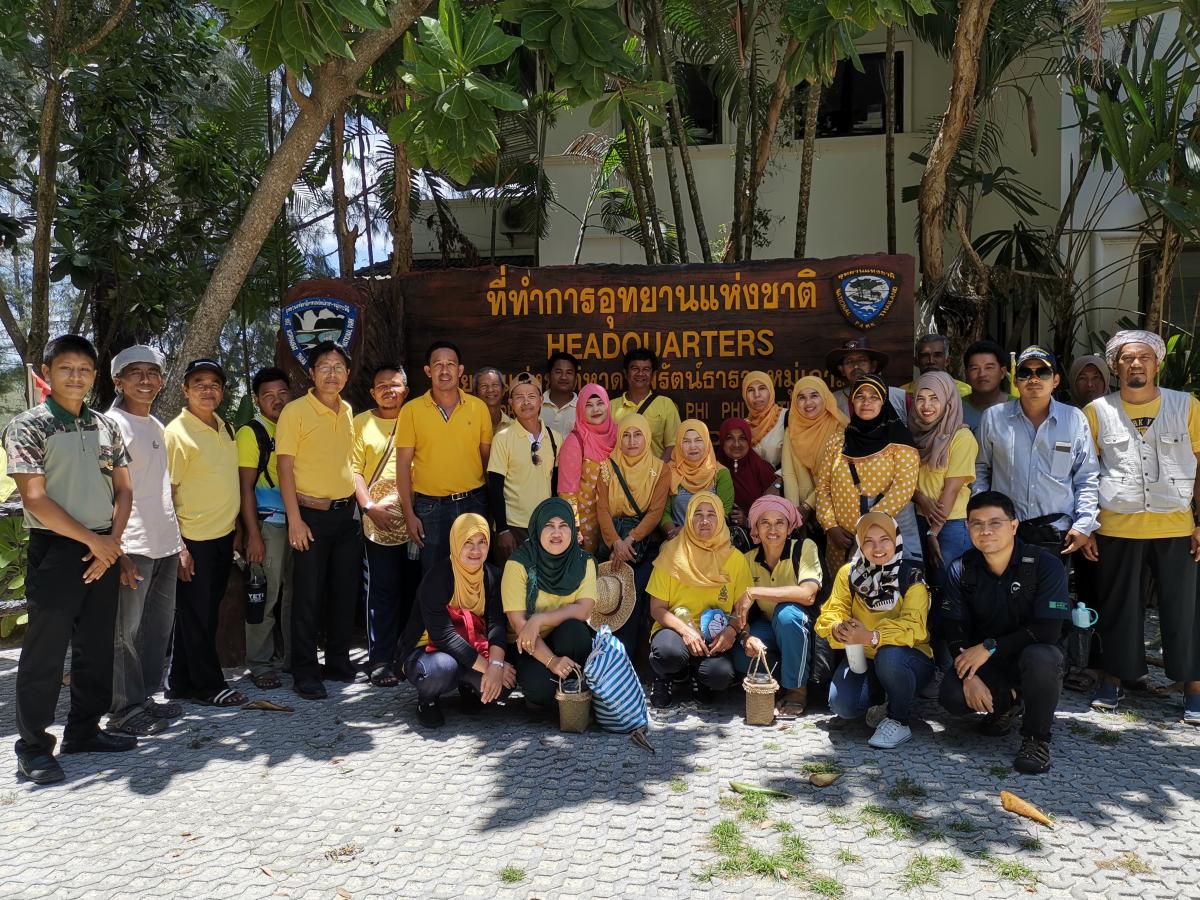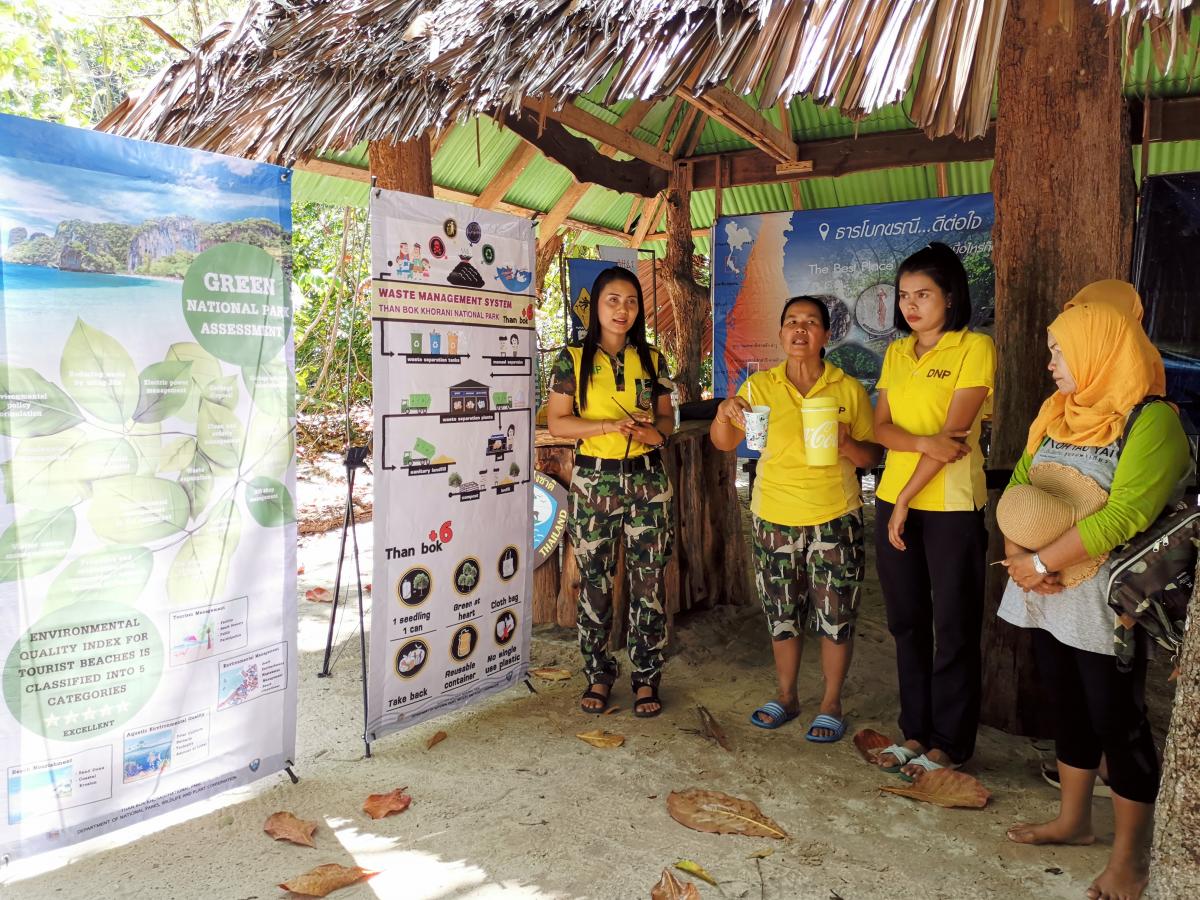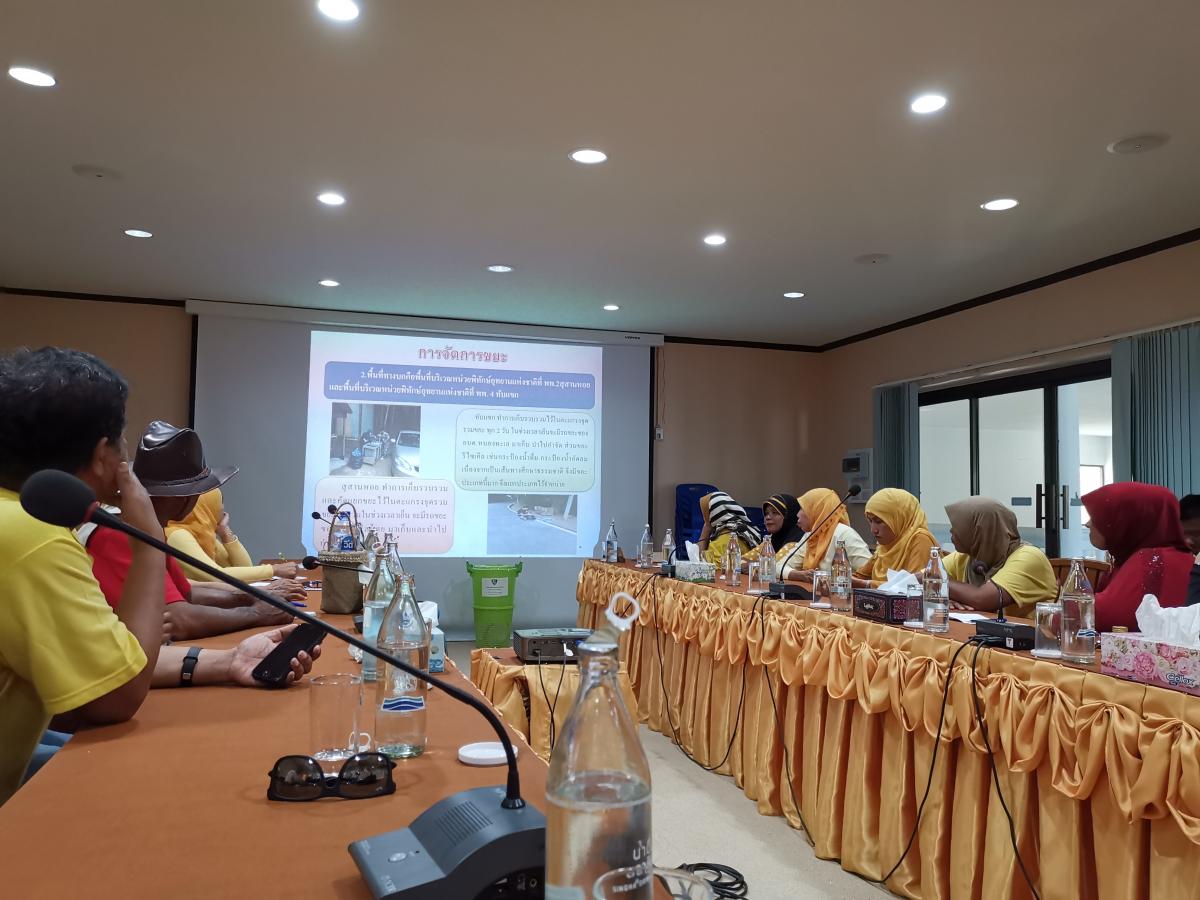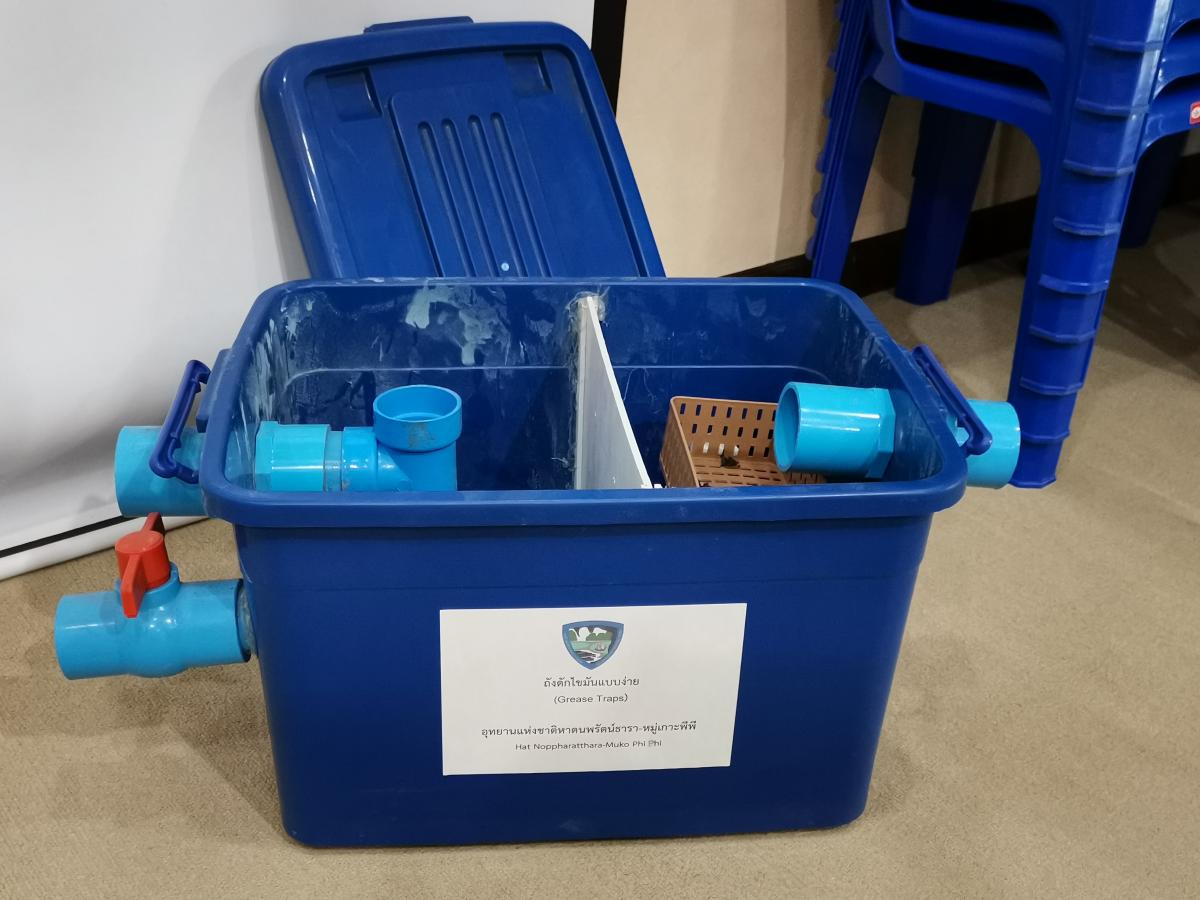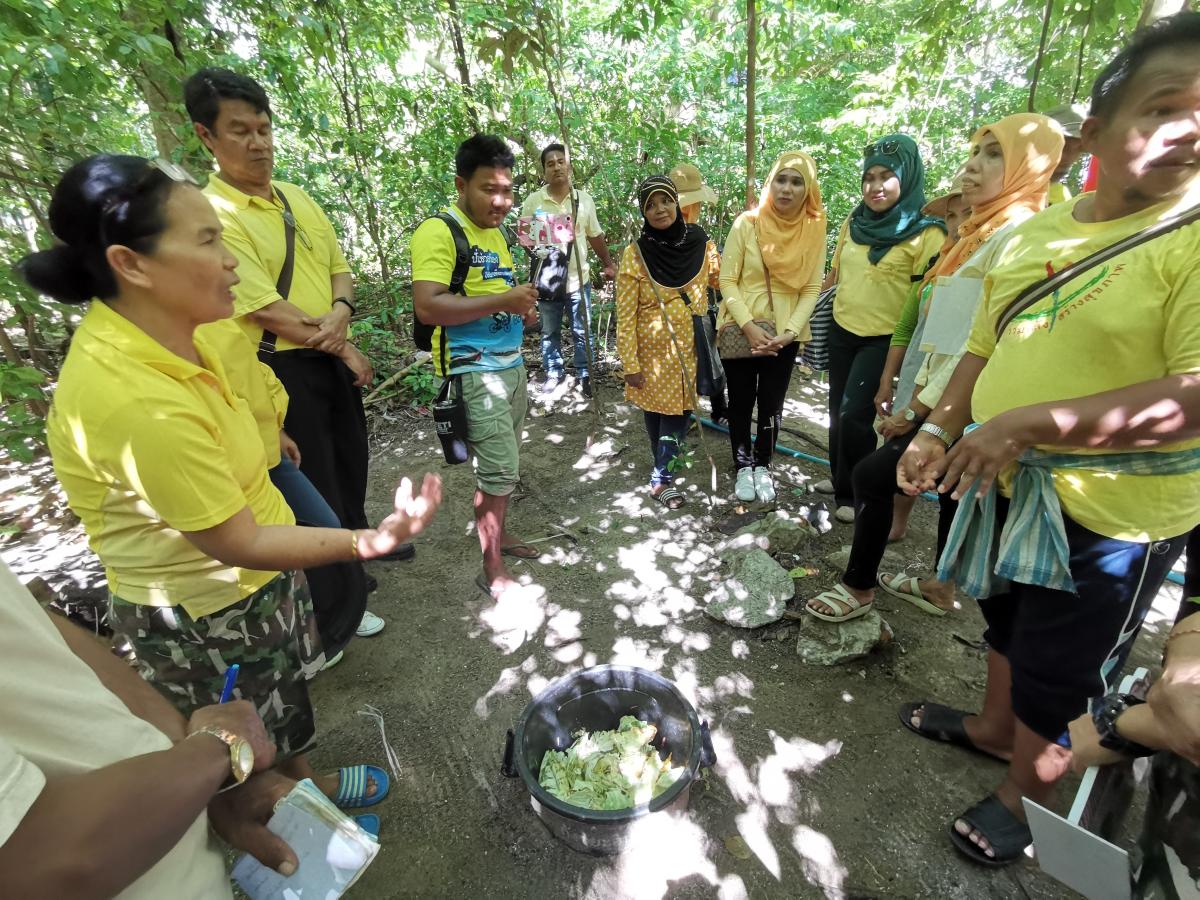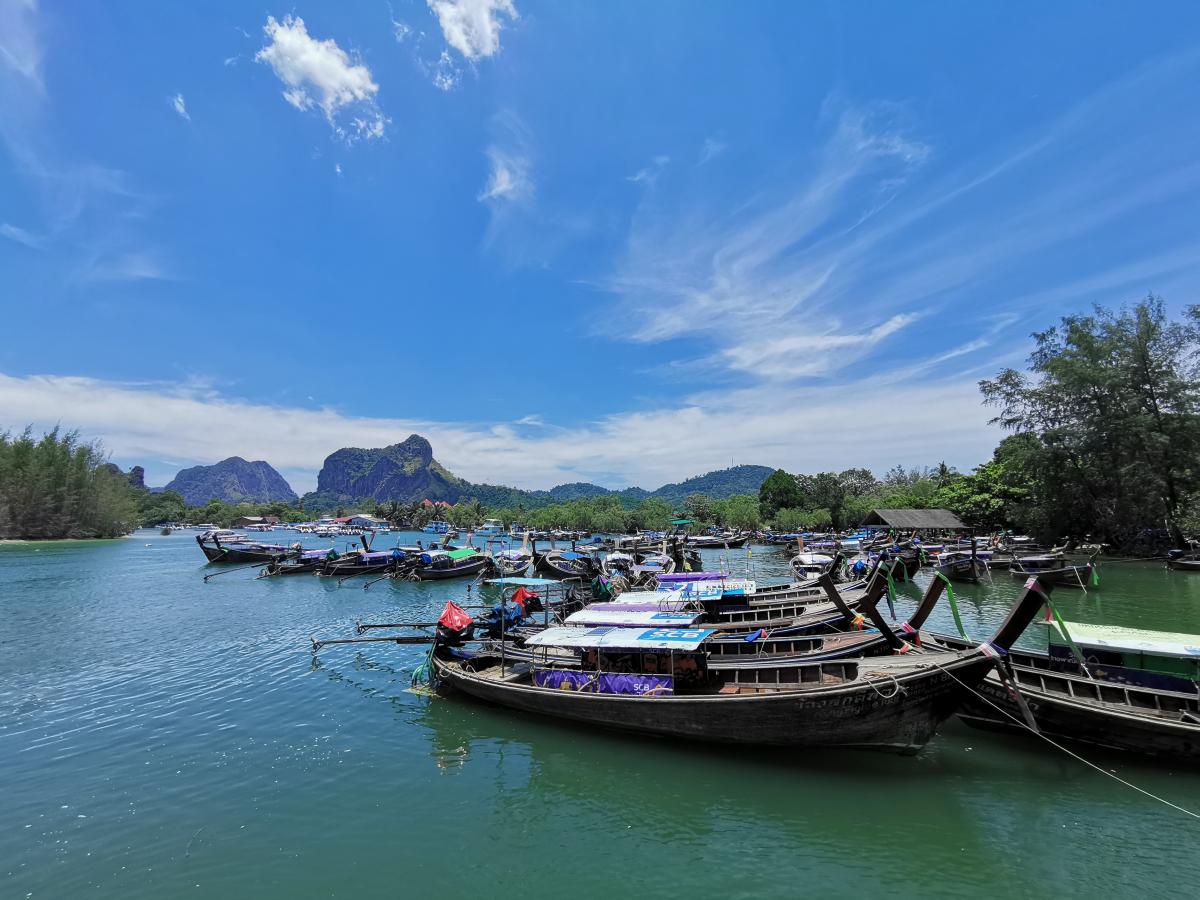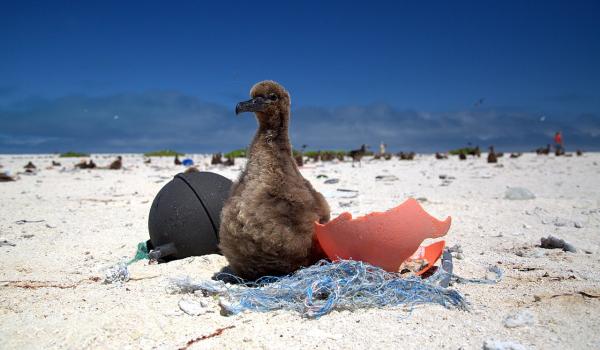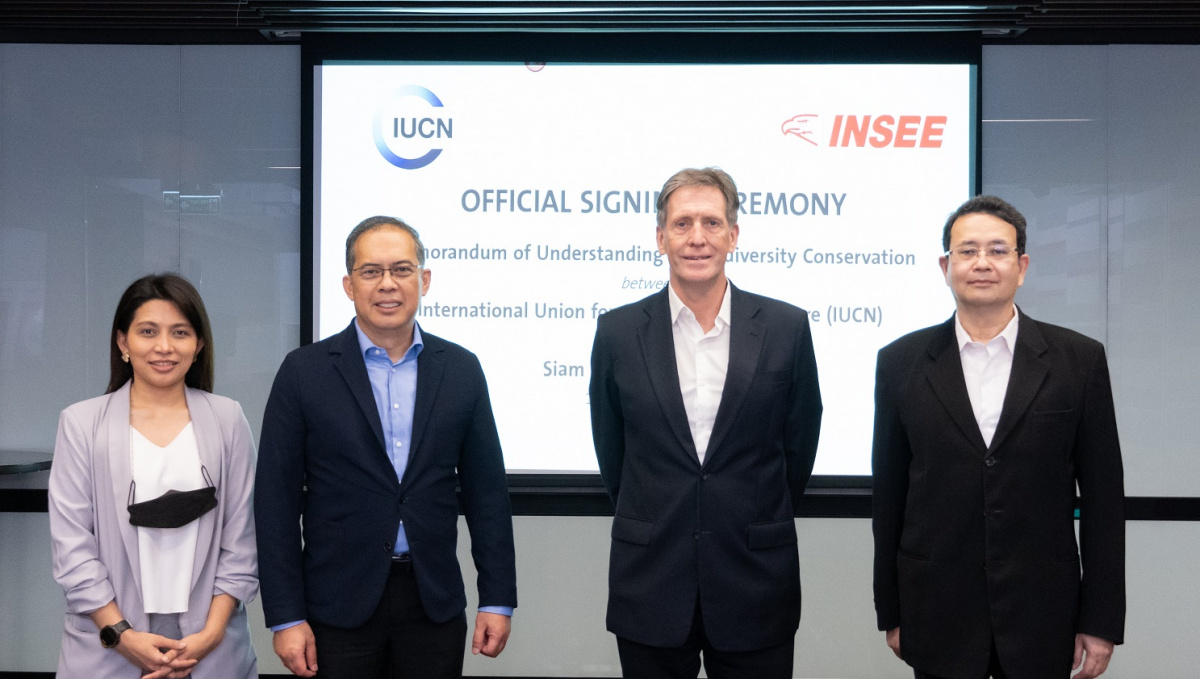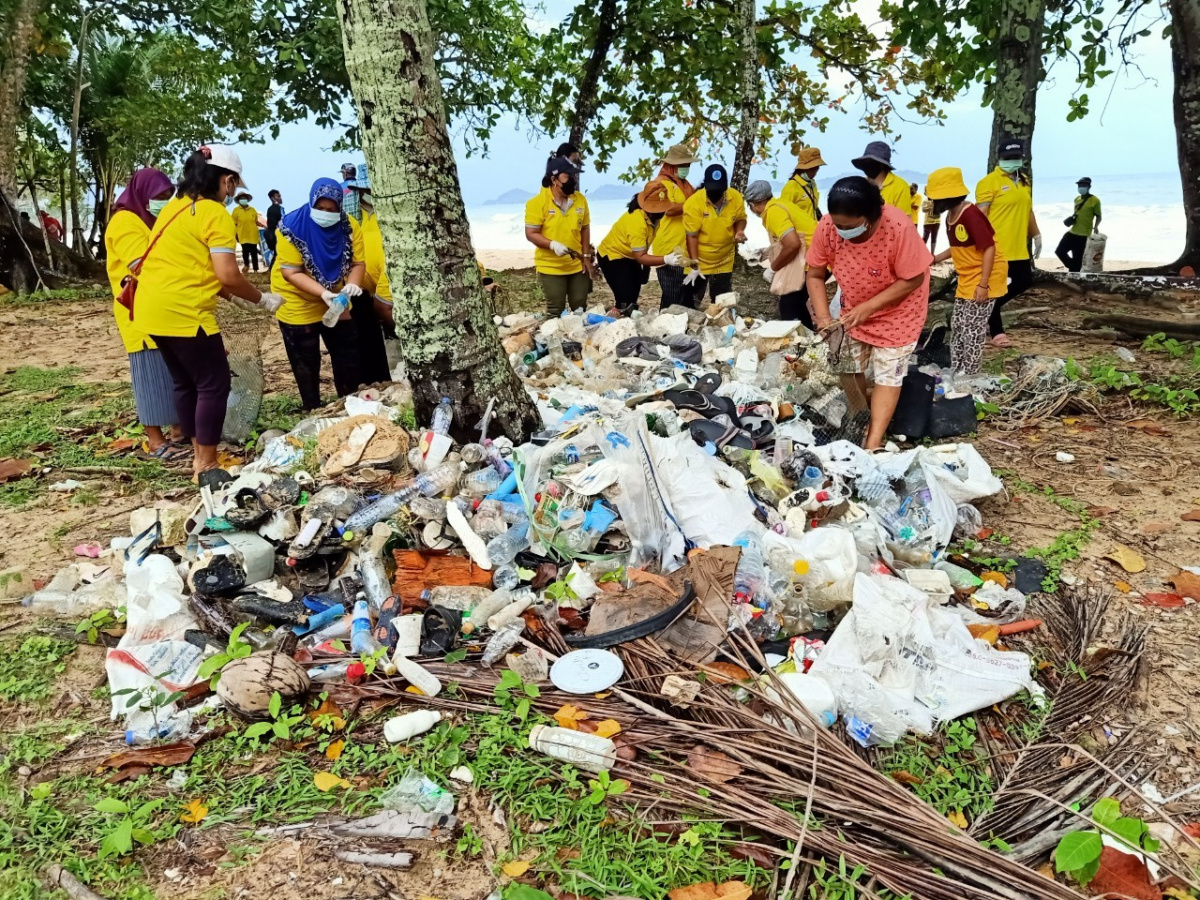Koh Yao Yai community learns solid waste management approaches from marine national parks
To learn more about solid waste management and marine litter, 30 representatives from the Koh Yao Yai Subdistrict community visited Haad Nopparat Tara-Moo Koh Phi Phi National Park and Tarnbokorani National Park on 10 April 2019. To learn more about solid waste management and marine litter, 30 representatives from the Koh Yao Yai Subdistrict community visited Haad Nopparat Tara-Moo Koh Phi Phi National Park and Tarnbokorani National Park on 10 April 2019.
The learning visit is part of the project “Tackling marine plastics in Thailand: from community-based actions to policies” being implemented by IUCN Thailand in Koh Yao Yai Subdistrict, Phang Nga Province, with support from Coca Cola Foundation.
Representatives from the four villages visited the two marine national parks where they learned approaches on solid waste management and how to reduce marine litter from the Department of National Parks (DNP) officers.
The programme started with Natchanon Yuebamrung, Recreation and Communication Officer, who explained the DNP’s strategies to resolve the marine litter issue, highlighting work with local authorities, local schools, tourism operators, and other businesses to reduce the number of wastes found on the beach.
He added that a 3Rs (Reduce, Reuse and Recycle) strategy has been initiated in the main National Park Administration Office of Nopparat Tara-Moo Koh Phi Phi National Park, and adopted by neighbouring communities.
Following this, Yuebamrung introduced innovative technologies developed by the DNP using low-cost materials. These include the ‘Grease Trap’ which filters oils and fats and the ‘Green Cone’ which digests organic wastes. He also presented the small-scale anaerobic bio-digesters, adapted for remote locations such as Maiphai and Porda Islands, which can transform organic waste into biogas and natural fertilizer.
Lastly, he shared that signages have been placed along the park’s pollution hotspots to inform tourists on the negative impacts of marine plastic pollution.
“I really hope that this visit will inspire the Koh Yao Yai community to apply simple, yet innovative technologies such as the Green Cone and Grease Trap in their waste management. These low-cost solutions will be very useful for organic waste management at the household level,’’ said Pinich Aengchuan, Assistant Superintendent, Haad Nopparat Tara-Moo Koh Phi Phi National Park.
The group also visited Koh Hong Island Tarnbokorani National Park. Community representatives observed the strict measures implemented on the island; where styrofoam is now prohibited, and paper cups and straws have become the norm. Tourists are requested to bring reusable lunch boxes and to bring their garbage back into the mainland. Wastes generated on the island are categorized as hazardous waste, recyclable waste, general waste, and organic waste. The first three categories are brought to the mainland for processing, while organic waste is turned into biogas and fertilizer using the Digestion Cone.
The participants were inspired by the waste management system used in the national parks and aim to replicate it in their community.
“Integrated solid waste management will not be successful if there is no garbage sorting at the household level,’’ said Prasert Boonsob, Head of Public Health and Volunteer at Koh Yao Yai Subdistrict.
The “Tackling marine plastics in Thailand: from community-based actions to policies” project aims to improve waste management policies and increase the management effectiveness of target communities in Koh Yao Yai subdistrict by promoting household level waste segregation using the 3Rs strategy.
The project will also promote stakeholders’ collaboration and integrated solid waste management in national parks located in Phang Nga Bay and Krabi.
